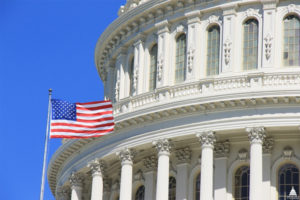Former U.S. Ambassadors Spar Over Russia, NATO, Ukraine

(RFE/RL – rferl.org – Mike Eckel – WASHINGTON – June 15, 2016)
Two former U.S. ambassadors to Russia clashed over past and future assessments of relations between Washington and Moscow and which country bears the greater responsibility for deepening bilateral tensions.
Michael McFaul and Jack Matlock delivered their remarks at a June 14 hearing before the House Foreign Affairs Committee, where sharpened rhetoric from committee leaders reflected mounting antipathy toward the Russian government among many U.S. officials.
Both McFaul, who served as the U.S. envoy in Moscow from 2012-14, and Matlock, who served from 1987-91, seemed to agree that internal Russian politics were driving much of the Kremlin’s foreign policy in recent years.
“This is all about domestic politics in Russia, and in Ukraine, and very little to do with American foreign policy, either strong or weak,” McFaul testified.
“It’s a tragic moment in Russian relations,” he added. “I don’t celebrate this at all, but we have to have a patient, comprehensive policy for deterring Russian aggression, working with the government when it is in our interest and working with Russian society.”
Matlock, meanwhile, cautioned against U.S. policies that might be perceived as meddling in Russian internal affairs, something President Vladimir Putin has complained about repeatedly.
“Yes, President Putin has made many mistakes, many that are not in Russia’s interests. But Putin’s government is a matter for Russians to decide. Their scandals are a matter for them to deal with,” Matlock said.
The two diplomats disagreed when lawmakers asked about whether the West had provoked Russia in expanding NATO to former Soviet-bloc states like Poland and the Baltic nations or whether the military alliances should consider softening its commitments to allies.
Matlock said he did not support NATO expansion during his time as ambassador to Moscow, and he suggested NATO may sometimes be more of a liability to the United States. He also singled out the uncertain benefits that Turkey’s membership provides.
“Politics are driven by perceptions, and their perception is that we have been consistently moving against their interests, and trying to encircle them, and even trying to interfere in their internal politics,” he said.
McFaul, who also served on the White House’s National Security Council prior to his tenure in Moscow, said the alliance needed to stand firm because weakness would invite further Russian aggression.
He rejected assertions that the Kremlin’s military seizure and annexation of Ukraine’s Crimean Peninsula was a direct response to NATO expansion.
“It all is a post facto rationalization for what Putin did in Ukraine,” McFaul said.
“I want to radically reject this moral equivalency. That we’re somehow all to blame here and that it’s blame on America, blame on the United States,” he added.
McFaul said that if he had a “top 10 commandments about how to be a good multilateralist, a good international citizen,” one of the top three would be: “Thou shall not annex the territory of your neighbor.”
“I’m sorry. That’s what [Putin] did,” he said. “We didn’t annex any territory. We didn’t foment any revolution against him.”
Both Matlock and McFaul told the committee that Washington needs to continue helping Ukraine to become stable and prosperous, though Matlock also insisted that a prosperous Ukraine must have good relations with Russia. And he suggested that the West might someday have to acquiesce to Russia’s annexation of the Black Sea peninsula.
“Ukraine is better off without Crimea,” Matlock said.
Article from Radio Free Europe/Radio Liberty – rferl.org – ©2016 RFE/RL, Inc. Article also appeared at rferl.org/content/us-former-ambassadors-spar-over-russia-nato-ukraine-washington-hearing/27798287.html
